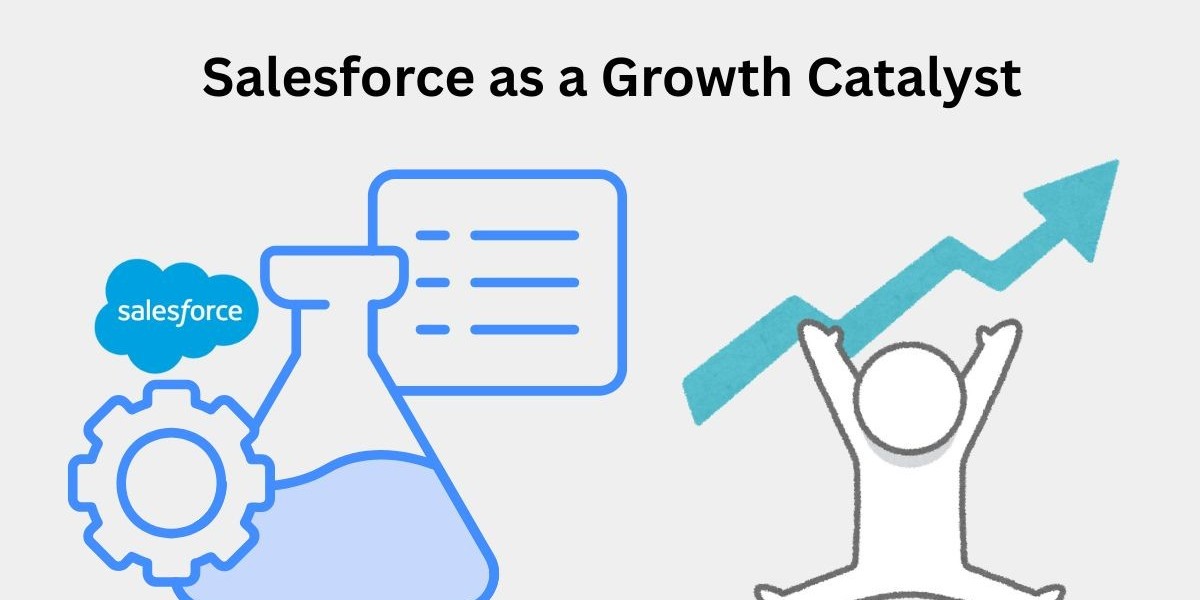Enterprise value extends far beyond financial metrics and quarterly performance indicators. It encapsulates the total worth of a business, including tangible and intangible assets like customer relationships, data integrity, operational efficiency, and adaptability. As organizations pursue strategies to enhance this value holistically, one platform stands out as a multifaceted growth catalyst: Salesforce.
More than a CRM, Salesforce operates as a comprehensive ecosystem for business transformation. It has become an instrumental tool in redefining how enterprises align their operations, engage with customers, streamline sales cycles, and harness data to drive strategic decisions. Through effective Salesforce utilization, businesses unlock new layers of value—improving not only their market position but also their internal capability to scale and innovate.
Understanding the Drivers of Enterprise Value
To appreciate Salesforce's role as a growth catalyst, it's essential to understand what drives enterprise value in the first place. Key factors include:
Operational Efficiency
Customer Lifetime Value
Brand Equity
Scalability of Business Processes
Data-Driven Decision Making
Employee Productivity
Salesforce offers native tools and modular components that directly influence each of these dimensions, thereby serving as a foundational layer for sustainable business growth.
Salesforce as a Strategic Asset
At its core, Salesforce centralizes data and processes across marketing, sales, service, commerce, and IT. This convergence offers a unified view of the customer journey, enabling teams to act with speed, accuracy, and personalization.
Rather than working in fragmented silos, teams can now collaborate through shared dashboards, workflows, and automated pipelines. With built-in intelligence and customizable functionality, Salesforce empowers organizations to embed agility and responsiveness into their DNA—two crucial attributes for any enterprise aiming to build long-term value.
Here’s how Salesforce becomes a catalyst for enterprise growth:
1. Process Automation and Efficiency
Repetitive, manual tasks are often silent value eroders. Salesforce offers powerful automation tools like Flow and Process Builder that optimize routine operations across departments. This not only accelerates task completion but also reduces human error, minimizes delays, and frees up human capital for high-value activities.
Automated lead nurturing, case routing, contract approvals, and post-sale communications are examples of how Salesforce streamlines the customer lifecycle. Over time, these efficiencies manifest in lower operational costs and improved customer retention—both contributing positively to enterprise value.
2. Data Unification and Insights
Salesforce consolidates scattered data points into a single source of truth. By integrating data from various sources—whether internal systems or third-party platforms—it delivers a holistic view of customers, markets, and performance indicators.
This unified data structure powers advanced analytics through native tools like Einstein Analytics and third-party integrations. Predictive insights, segmentation modeling, and trend analyses empower stakeholders to make informed, forward-looking decisions. As a result, enterprises move from reactive to proactive strategies, mitigating risks and seizing opportunities with greater precision.
3. Customer Experience Optimization
Customer satisfaction and loyalty are major contributors to enterprise value. Salesforce enables companies to deliver tailored, seamless experiences at every touchpoint. With Service Cloud, for example, companies can automate case management, route issues to the right agents, and even deploy AI-powered chatbots to address queries instantly.
Moreover, Salesforce Marketing Cloud helps businesses execute personalized marketing campaigns across channels, nurturing leads with content that resonates. These touchpoints culminate in stronger relationships, better retention rates, and higher customer lifetime value.
4. Sales Acceleration and Forecasting
Salesforce Sales Cloud empowers sales teams with tools to manage pipelines, prioritize leads, and close deals faster. It includes features like opportunity scoring, revenue tracking, and AI-based forecasting that refine how sales reps allocate their time and effort.
By making the sales process more data-driven and less intuitive, businesses can improve win rates and reduce sales cycle lengths. Better predictability also aids in strategic planning and resource allocation, further driving enterprise performance.
5. Scalability and Flexibility
Salesforce is built to scale with the enterprise. Its cloud-based architecture allows businesses to expand usage without massive infrastructure overhauls. Whether launching in a new region, adding a new product line, or expanding to new customer segments, Salesforce can support the evolution seamlessly.
Its AppExchange ecosystem and extensive customization capabilities make it adaptable to niche business needs. This agility ensures that enterprise systems do not become bottlenecks during phases of rapid growth or transformation.
The Role of a Salesforce Implementation Consultant
Implementing Salesforce effectively is not a plug-and-play operation. It demands strategic planning, technical proficiency, and a deep understanding of business processes. This is where the Salesforce Implementation Consultant becomes pivotal.
These consultants serve as the bridge between business goals and platform capabilities. They guide the entire implementation lifecycle—from requirement gathering and system design to customization, integration, and user training. Their value lies in crafting a Salesforce environment that reflects the unique needs and growth trajectory of the enterprise.
Key Responsibilities of a Salesforce Implementation Consultant
Needs Analysis: Assess organizational workflows and define business objectives.
Solution Design: Architect Salesforce instances to align with operational and strategic needs.
Customization: Configure fields, workflows, dashboards, and reports to support targeted outcomes.
Integration: Connect Salesforce with existing enterprise systems (ERP, marketing platforms, etc.).
User Enablement: Provide training and documentation for teams to maximize platform adoption.
Post-Implementation Support: Offer ongoing optimization and troubleshooting.
In essence, the consultant ensures that Salesforce is not just installed, but truly embedded within the organization’s value creation engine.
Maximizing ROI Through Strategic Adoption
To fully unlock enterprise value through Salesforce, implementation must be followed by deliberate adoption and continuous improvement. This involves:
Change Management: Encouraging cultural alignment with the platform.
Training Programs: Regular upskilling to ensure users leverage the platform effectively.
Performance Monitoring: Establishing KPIs to track success and guide iterations.
Governance: Maintaining data hygiene and system compliance.
Strategic adoption also means continuously exploring new features, modules, and integrations as the business landscape evolves. Whether it’s AI enhancements, industry-specific solutions, or mobile-first functionalities, staying ahead of the innovation curve ensures that Salesforce remains a long-term asset rather than a static tool.
Conclusion
Salesforce is far more than a CRM—it is a strategic enabler that fuels enterprise growth, resilience, and adaptability. Its capacity to unify data, automate processes, empower employees, and enhance customer relationships directly contributes to elevating enterprise value.
However, this potential is fully realized only when Salesforce is implemented with intention and expertise. Here, the Salesforce Implementation Consultant plays an indispensable role, aligning platform capabilities with business imperatives to create a foundation for sustained success.
As enterprises navigate the complex terrain of digital transformation, Salesforce stands as a powerful lever—not just for managing customers, but for shaping the future of the business itself.







